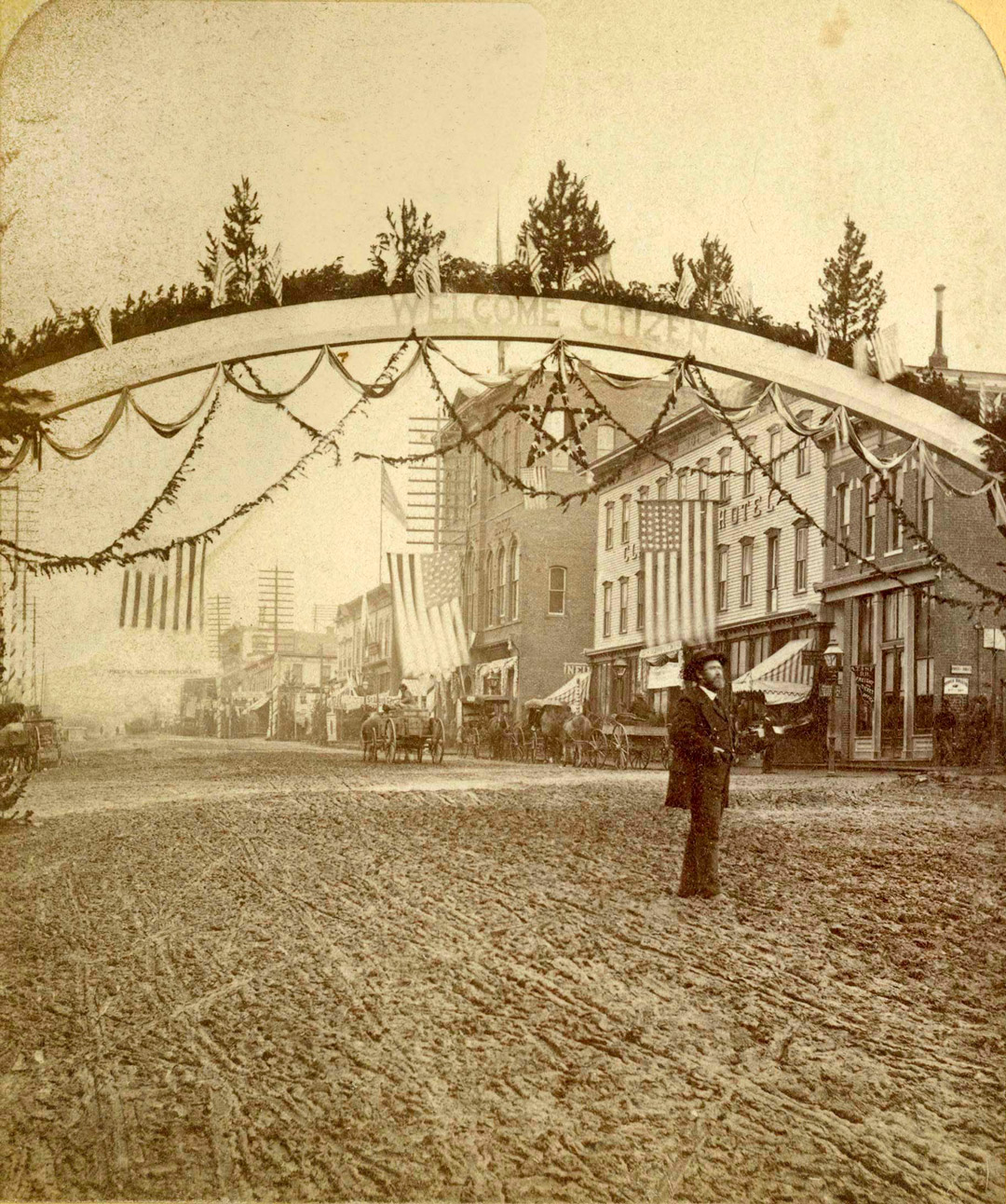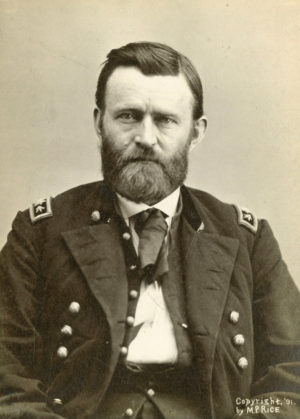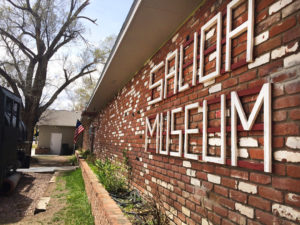
By Forrest Whitman
Ulysses S. Grant, Civil War hero and President from 1869 to 1877, is an often forgotten part of history in Central Colorado. Interest in President Grant is sure to peak now that Ron Chernow’s biography, Grant, is out. Chernow made Alexander Hamilton come to life for us and the hit Broadway musical followed. Could a musical be on the way for Grant?

Central Colorado has special ties to Grant. His three visits to Colorado culminated in an 1880 visit to Salida, Gunnison and Leadville. Grant always had a special place in his heart for Colorado and that was reciprocal. Even as national scandal after scandal roiled around Grant’s appointees, his popularity remained. Even when it was clear that he appointed incompetent and corrupt old friends to top positions, he stayed popular here.
Colorado loved him. During his second visit, on April 28, 1873, Gilpin County literally rolled out a silver carpet for him. Locals raised $20,000 to build a sidewalk of silver bricks for him to walk on as he went up to the Teller House in Central City.
Actually, he didn’t step on the sidewalk. The debate over gold vs. silver for the national currency was strong and he avoided that issue smartly. But the sidewalk was an example of how much this state did support him.
His 1880 visit to Central Colorado was a triumph. He rode the narrow gauge Denver and Rio Grande train to Salida and was met by a delegation of locals. He then was taken over Monarch Pass in a four-horse stage. He toured mines in Taylor Park and Gunnison and then returned to Salida.
Grant then rode the newly-completed Denver and Rio Grande Railroad up to Leadville. That 1880 trip has been made into an entertaining novel by Ann Parker (called Iron Ties). Grant was met by five bands and a hundred-gun salute. He gave a short speech on a platform erected in front of the Clarendon Hotel and the crowds went mad. Ann Parker’s novel hardly over-emphasizes his popularity.
[InContentAdTwo] All of this would be only entertaining history if not for the fact that history repeats itself, or at least rhymes. The 1870s and 80s were mirrors for our country today. Grant faced white supremacist groups at least as strong as today’s. They carried homemade torches instead of the Tiki torches now favored, but they were just as serious. The Ku Klux Klan was strong and dedicated to “support a white man’s government.”
Part of the Klan promise was to always carry firearms and be ready to resist the federal government. We’ve plenty of that same thinking too. Grant remained a strong believer in human rights and democracy. He did not waver.
Ulysses S. Grant wrote that probably his greatest achievement was passage of the 15th Amendment to the Constitution. This gave former slaves the right to vote. He wrote, “The adoption of the 15th amendment constitutes the most important event that has occurred since the nation came to life.” As we watch the many efforts being made to limit voting today we can see a sad history repeat itself.
Grant’s immense popularity in Colorado came almost in spite of his diminishing standing nationwide. His opponents never ceased harping on the theme that he was a drunk. Yet, he knew he had to stay away from alcohol. He claimed to have abstained for twenty years. He was guilty of appointing a cabinet and officials too often laced with old friends. Some of them were remarkably corrupt. Many newspapers harped on that, and rightly so, it would seem.
On the other hand, one of Grant’s appointments, Attorney General Amos T. Ackerman of Georgia, was a man we could use today. Today’s President Trump would never appoint a fighter for human rights like Grant’s Ackerman. Jefferson Beauregard Sessions, our current A.G., turns a blind eye to states seeking to limit voting for poor whites and blacks. Ackerman fought that same fight. He was also a legend for probity. He simply could not be bought.
Nothing kept Grant’s attorney general from going after the white supremacists. What a record of wins Ackerman had! He brought 3,384 indictments, mostly for violations of civil rights. He got a stunning 1,143 convictions. The African American community responded. The famous abolitionist Frederick Douglass said, “Peace has come to many places as never before.”
It’s a credit to the Central Colorado of old that we supported Grant even when the nation seemed to be losing faith in the man. His visit here is a part of our history worth celebrating.
Forrest Whitman loved sitting in the Victoria Tavern and arguing Colorado history with Ed Quillen. Points of agreement found: Old Overholt (aka Old Overshoes) was the true Colorado whiskey and the Colorado Association of Railroad Passengers is the only lobby group deserving of respect.


